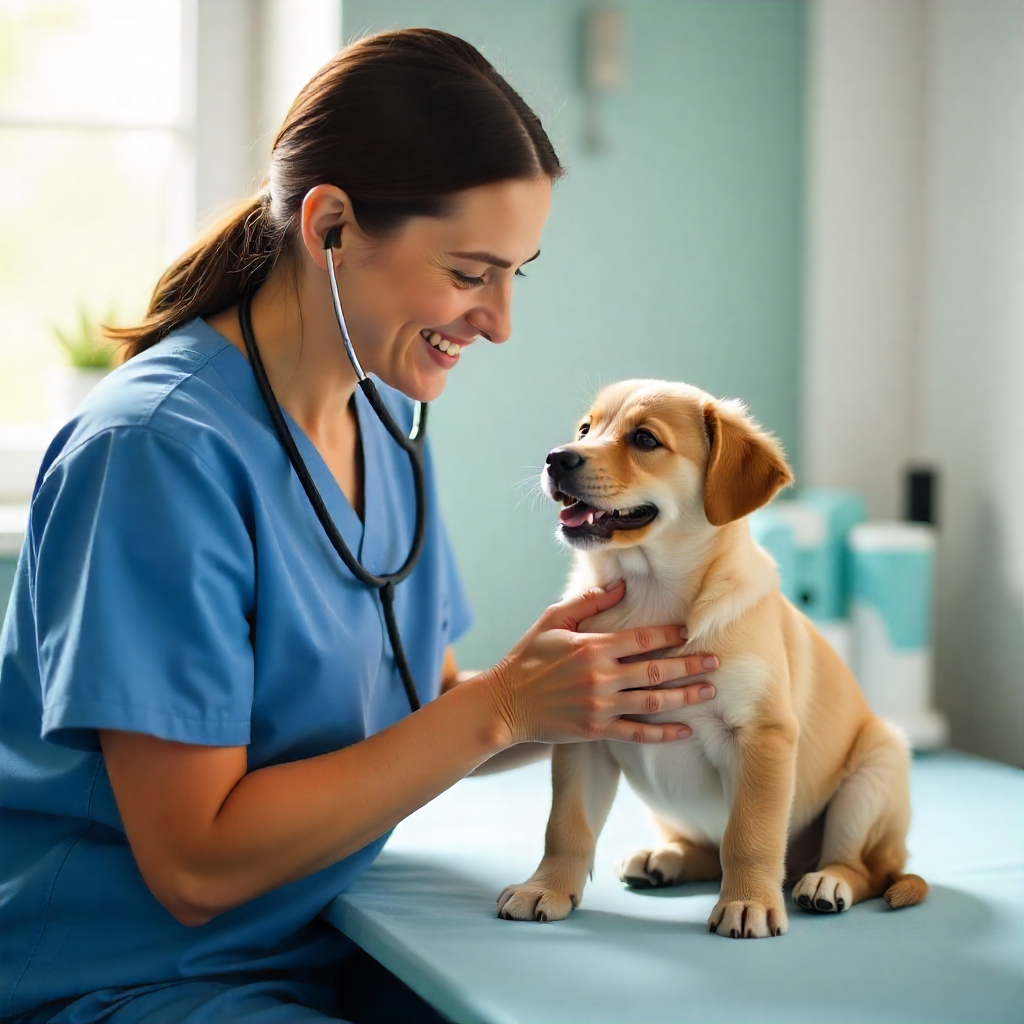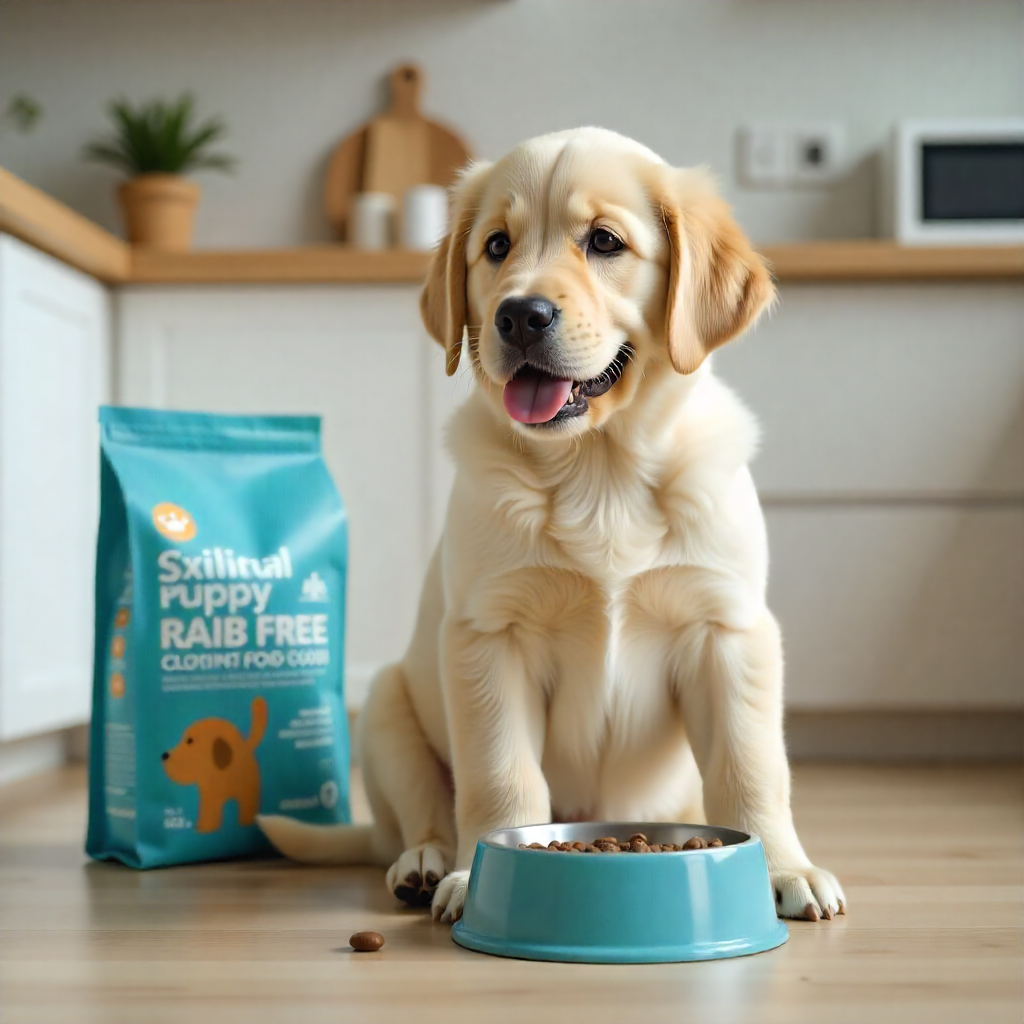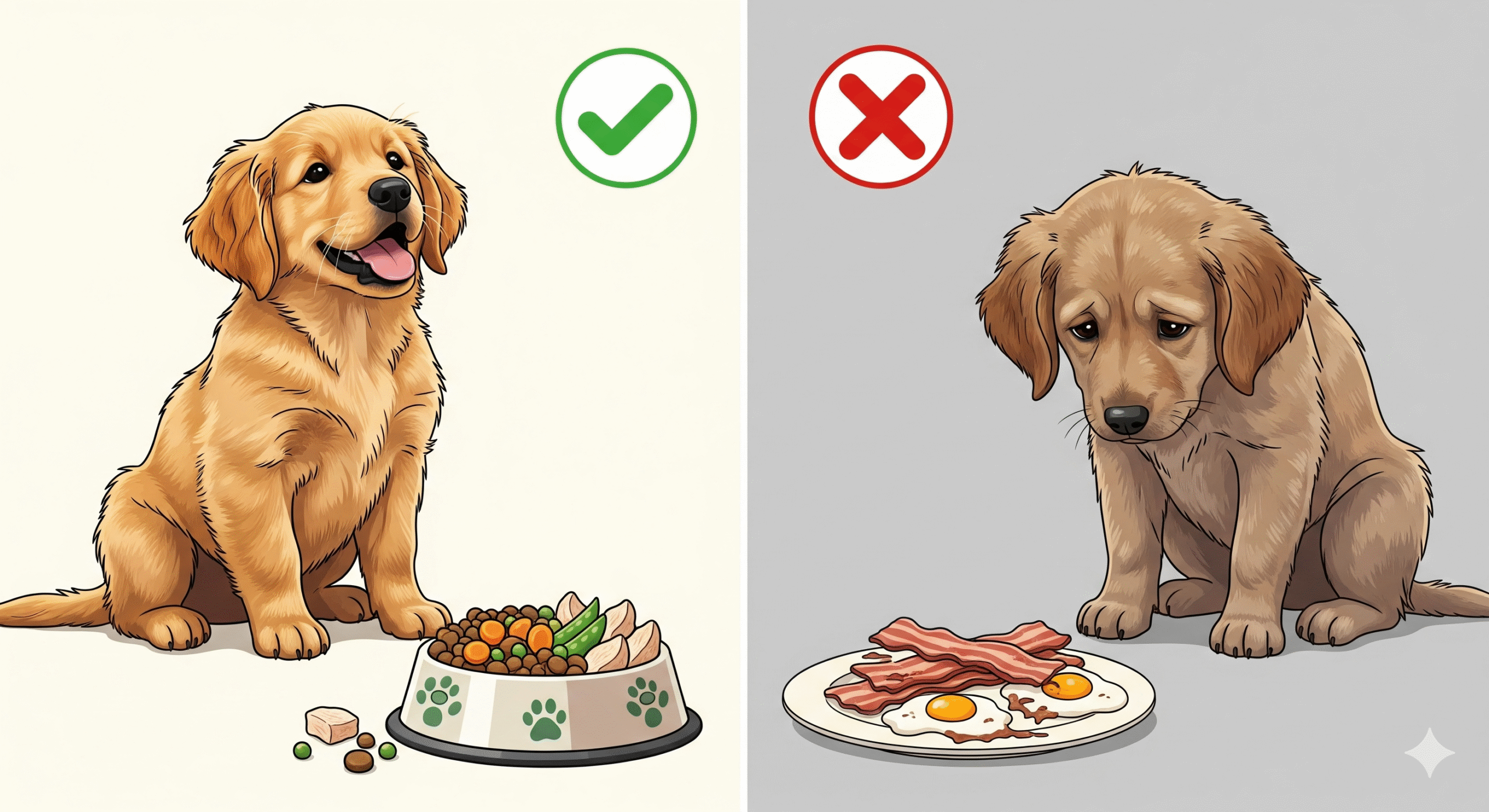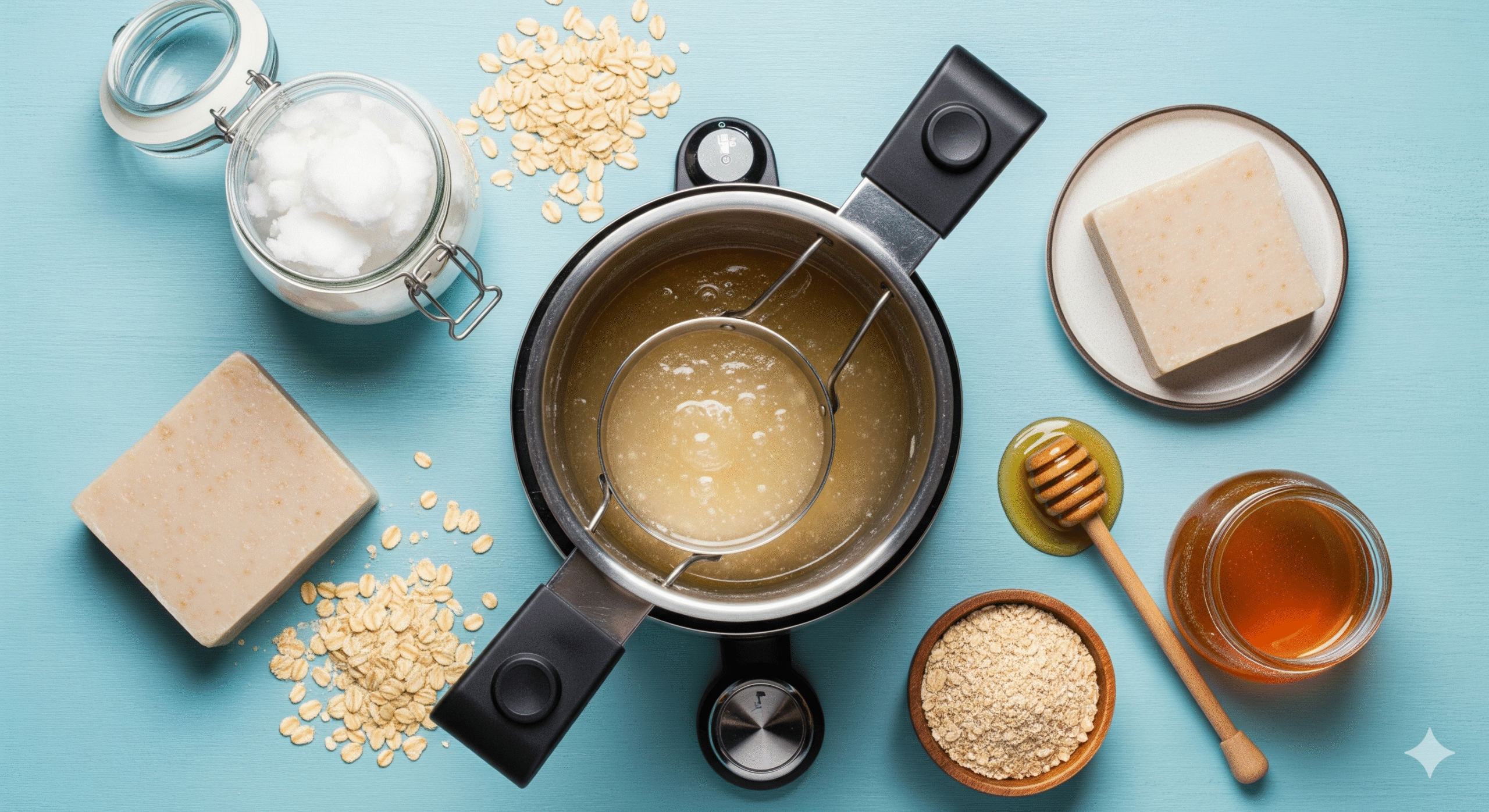Bringing a new puppy home is a whirlwind of joy, cuddles, and… countless decisions. One of the most crucial choices you’ll make is what to put in their bowl. With the rising popularity of grain-free puppy food, many pet parents are wondering if it’s the right choice for their furry family member.
You’ve likely heard the buzz—both positive and negative. Some swear it solved their pup’s allergies and digestive issues, while alarming headlines warn of a potential link to heart disease. It’s enough to make any caring owner’s head spin.
So, what’s the truth? As an SEO content expert and a dedicated researcher who consults with veterinary professionals, I’ve delved deep into the science to bring you a balanced, vet-informed review. We’ll unpack the benefits, the serious risks, and provide actionable tips to ensure you make the safest, most informed decision for your growing pup.
What Exactly is Grain-Free Puppy Food?
At its core, grain-free puppy food is exactly what it sounds like: a formulated diet that excludes traditional cereal grains like wheat, corn, rice, barley, and oats. Instead of these carbohydrates, manufacturers use alternative sources of carbs and fiber.
It’s essential to understand that “grain-free” does not mean “carb-free.” To create a balanced kibble, other ingredients are used as binders and energy sources. Common substitutes include:
- Potatoes (white and sweet potatoes)
- Legumes (peas, lentils, chickpeas)
- Other Starches (tapioca, cassava)
The initial intention behind these diets was noble: to provide an option for the small percentage of dogs with genuine grain allergies or specific medical conditions that required such a formulation.
The Potential Benefits: Why Do Pet Parents Choose It?
The appeal of grain-free puppy food is understandable. Many owners report positive changes after making the switch, driving its popularity. These perceived benefits include:
- 🍗 Reduced Allergy Symptoms: While true grain allergies are rare in dogs (making up less than 1% of all skin disease cases), some puppies can be sensitive to certain grains. For these specific cases, eliminating the allergen can lead to less itchy skin, fewer ear infections, and a healthier coat.
- 🤢 Improved Digestive Health: Some puppies with sensitive stomachs may digest alternative carb sources like sweet potato or pumpkin more easily than corn or wheat, potentially leading to less gas and firmer stools.
- 🌟 High-Quality Protein Focus: Many grain-free diets are marketed as premium and are often formulated with a higher concentration of animal-based proteins (like chicken, salmon, or lamb), which are crucial for muscle development and energy in growing pups.
- 📈 The “Ancestral Diet” Trend: The concept of feeding a dog a diet closer to what their ancestors ate—high in protein and low in carbs—resonates with many owners, even though modern dogs have evolved to digest carbohydrates quite efficiently.
The Elephant in the Room: The FDA Investigation & DCM Risk
This is the most critical part of the discussion and the primary reason for caution. In 2018, the U.S. Food and Drug Administration (FDA) began investigating a potential link between certain grain-free diets and a serious heart condition called Canine Dilated Cardiomyopathy (DCM).
What is Dilated Cardiomyopathy (DCM)?
DCM is a disease of the heart muscle that leads to an enlarged heart. As the heart enlarges, it becomes weaker and cannot pump blood efficiently, often leading to congestive heart failure. Certain large and giant breeds (like Dobermans and Great Danes) have a known genetic predisposition to DCM.
The alarming part of the FDA’s findings was that cases were being reported in breeds not typically genetically prone to the disease.
What’s the suspected link?
While research is ongoing and a definitive cause-and-effect relationship has not been established, the investigation points a strong finger at the formulation of many grain-free diets, specifically those that:
- Contain high levels of legumes (peas, lentils, chickpeas, beans).
- text**List potatoes** as a primary ingredient.
- text**Use exotic meats** or are limited-ingredient diets.
The leading hypothesis is not necessarily the absence of grains, but the presence of high concentrations of these legumes and pulses. They may interfere with the absorption of the amino acid taurine, a critical nutrient for heart health. Some dogs with DCM linked to diet had low taurine levels, which improved when they were switched to a different food and given taurine supplements.
Actionable Tip: How to Check Your Food’s Ingredients
Don’t just look at the front of the bag! Turn it over and read the ingredient list. If the first five ingredients include multiple legumes (e.g., peas, pea protein, lentil flour, chickpeas) or potatoes, it may be considered a “high-risk” formulation based on the FDA report. This doesn’t mean it will cause DCM, but it’s a factor to discuss with your vet.
So, Is Grain-Free Puppy Food Safe? A Vet’s Perspective
Based on the current science and expert consensus, the answer is not a simple yes or no. The general veterinary guidance is erring on the side of caution:
“Grain-free puppy food should not be fed without a specific, veterinary-diagnosed reason.”
For the vast majority of puppies, a well-researched diet that contains grains is a perfectly healthy and safe option. Grains provide valuable nutrients, energy, and fiber. The decision to go grain-free should be a medical one, not a marketing-driven one.
If your puppy has a confirmed grain allergy (diagnosed via an elimination diet supervised by your vet), then a grain-free diet is necessary and appropriate. However, for most pups, the potential risks associated with certain grain-free formulas currently outweigh the unproven benefits.
How to Choose the BEST Food for Your Puppy
Your puppy’s nutritional needs are immense. They’re building their entire body. Here’s how to navigate the choice, whether you’re considering grain-free or not.
- 🗣️ Consult Your Veterinarian: This is the most important step. Your vet knows your puppy’s breed, size, and health history. They can recommend brands that meet rigorous nutritional standards and are appropriate for your specific dog.
- 🏭 Look for AAFCO Statement: Ensure the food bag has a statement from the Association of American Feed Control Officials (AAFCO) confirming it is “formulated to meet the nutritional levels established by the AAFCO Dog Food Nutrient Profiles for growth” or “all life stages.” This means it’s complete and balanced for a puppy.
- 🔬 Prioritize Research-Backed Brands: Choose brands that employ veterinary nutritionists and conduct feeding trials. These companies don’t just formulate food on paper; they test it on dogs to ensure it’s safe and effective over time. (Think: Purina Pro Plan, Royal Canin, Hill’s Science Diet, Eukanuba, and Iams).
- 📊 Focus on Nutrients, Not Just Ingredients: A long list of “superfoods” doesn’t always equate to a balanced diet. The overall nutritional profile is what matters most for your puppy’s development.
- 👀 Monitor Your Puppy Closely: No matter what food you choose, watch your puppy’s energy levels, stool quality, skin health, and overall growth. They are the best indicator of whether a diet is working.
A Quick Checklist for Puppy Food Selection
- My veterinarian has approved this food.
- It has an AAFCO statement for “growth” or “all life stages.”
- The first ingredient is a high-quality animal protein source.
- The company has a strong reputation and invests in research.
- My puppy thrives on it: healthy skin, consistent energy, and firm stools.
Final Verdict: Proceed with Caution and Expert Guidance
The world of grain-free puppy food is complex. While it serves a purpose for a small subset of puppies with legitimate medical needs, it is not a universally superior choice and may carry unforeseen risks due to its formulation.
The bond you share with your puppy is built on love and trust, and that includes trusting science and expert advice. The safest path is to partner with your veterinarian to select a diet that is proven to be nutritionally complete, balanced, and safe for long-term growth and heart health.
Your puppy is counting on you to make the best choice. By being an informed and cautious pet parent, you can set them up for a long, healthy, and happy life by your side.

Intrigued by Raw Feeding? This article provided a brief overview, but raw diets are a complex topic that shouldn’t be entered into lightly. If you’re serious about exploring this option, it’s crucial to start with a solid educational foundation. For a comprehensive look at formulation, sourcing, transition strategies, and safety, please read our Raw Food for Puppies: Complete Beginner’s Guide.






